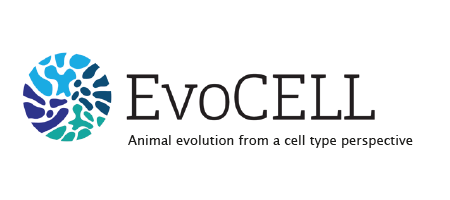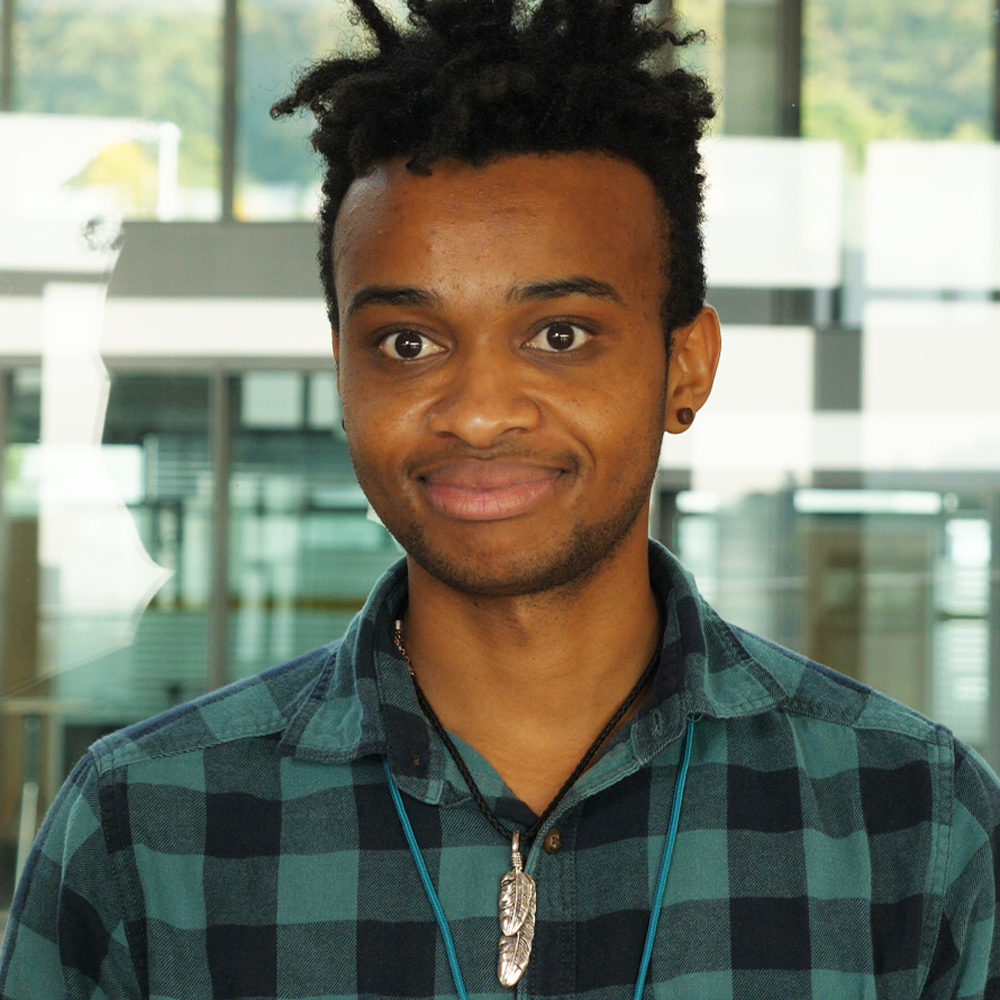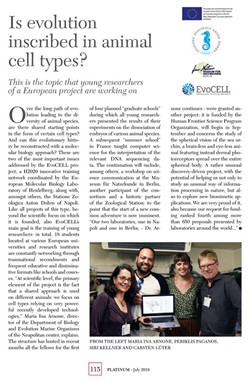DISCOVER HOW WE SEE THE EVOLUTION OF LIFE FROM A CELL TYPE PERSPECTIVE
Eleven young scientists share their research, perspectives, and PhD life at 10 different research organisations from 6 European countries, all connected through the EvoCELL network and a common interest in the genome, cells, and animal evolution.
Latest Posts:
Spider-Man and the model organism
Like people say in Sweden, "Hej, allihop!" Long time no see. Summer break is over and autumn is here, the temperature has dropped and rain pours almost daily. Last time, I talked about the spiders I am breeding in my lab. Following this post, I want to talk in deep...
read moreLuca Santangeli
My interests in biology have always been very broad, spanning from the smallest chemical and molecular interactions to animal’s biology, behaviour and the big picture of evolution. I find astonishing how evolution led to the biodiversity of our planet and shaped...
read moreNervous system and networks
Hey all! Welcome to my new blog post. Today, I’m gonna channel my inner professor and try to explain in simple words how the sea urchin larva nervous system is structured and what is a gene regulatory network. Us, humans when we want to perform a task, e.g. picking up...
read moreWhy studying “ugly” species matters?
Hey there. In this second video I talk about the importance of studying what we call "ugly" species for biomedical, biological and conservation research. Enjoy it. [video width="1920" height="1080"...
read moreEvoCell podcast #3 – special mini edition: Tell us something weird about your animal
Welcome back to the EvoCell podcast! In this special mini edition, we go around and ask the fellows (and anyone else who was willing to be recorded) for odd, grim, gory, fun facts about the animals they work with. This podcast should probably be labelled NSFW for...
read moreLife aquatic with Parhyale hawaiensis
Better late than never, today I am going to introduce the organism I am working with: Parhyale hawaiensis! These “little shrimps” as my mom called them, are...
read moreMore about the joy of single cell sequencing: Cell dissociation
How to dissociate samples into single cells *whilst not lose all hope of eventually becoming a Doctor of Philosophy* There are a LOT of different protocols to dissociate samples into single cells. However, to boil it down, they all use three main drivers: trituration...
read moreUnveiling neural cell-type(s)
[Opinion] Neural cell types, like other many cell types, come in a constellation of different morphologies and connectivity amongst other cell-types. For the past century, neurobiologists (and anatomists alike) have pursued the descriptions of neural cell types at the...
read moreFILLED: 12-month Marie Curie fellowship on the regulatory genomics of regeneration
A 12 month fellowship in molecular biology and developmental genetics is available at the Institut de Genomique Fonctionnelle de Lyon (IGFL) in France, under the co-supervision of Michalis Averof and Mathilde Paris. The fellowship is funded by the Marie Curie ITN EvoCELL (https://evocell-itn.eu/).
read moreCharlie Hillier
I am interested in exploring the relationship between cell types across species in order to understand their evolutionary lineage, and the evolution of novel functionality. Do cell types follow a phylogenetic relationship in a way analogous to animal evolution? If so,...
read moreLatest Video feeds:

FILLED: EvoCELL ITN short-term fellowship “Single-Cell sequencing and live imaging of marine embryos”
EvoCELL ITN short-term fellowship
A short-term (up to 9 month) fellowship to conduct a research project about the evolution of larval body plans is available in the lab of Prof. Dr. Andreas Hejnol at the Department of Biological Sciences (University of Bergen, Norway).

CLOSED: A Graduate Research Assistant Early Stage Researcher post at Living Systems Institute, College of Life and Environmental Science, Exeter
A Graduate Research Assistant Early Stage Researcher post is available for 12 months at the Exeter Campus funded as part of an EU H2020 Marie-Sklodowska Curie Innovative Training Network.







